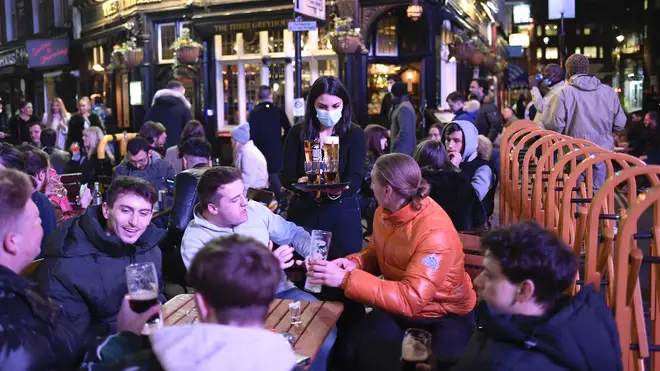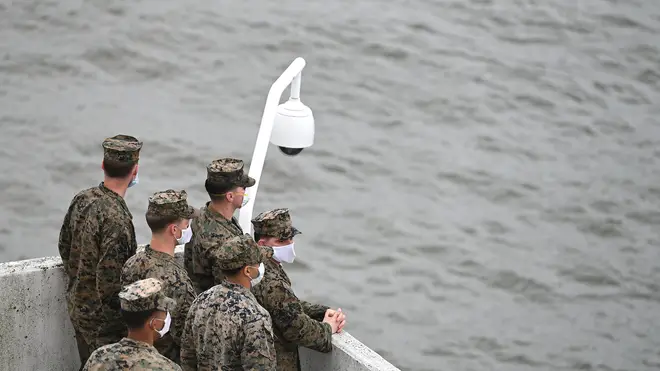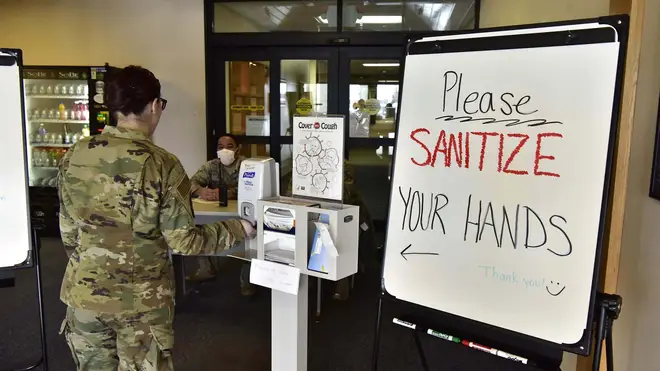
Iain Dale 10am - 1pm
16 April 2021, 07:46 | Updated: 16 April 2021, 07:55

Previous Covid-19 infection does not fully protect young people against catching it again, a study has found.
Researchers studying more than 3,000 healthy members of the US Marine Corps, most aged 18 to 20, found that despite previous infection and the presence of antibodies, vaccination is still needed to boost immune responses, prevent reinfection and reduce transmission.
According to the observational research, carried out between May and November 2020 and published in the Lancet, around 10% (19 out of 189) of participants who had previously been infected with Covid-19 caught the virus a second time.
READ MORE: Pubs, restaurants and offices must be well ventilated to halt covid spread, doctors warn
This was compared with new infections in 50% (1,079 out of 2,247) of participants who had not had the virus previously.
Although the study was in young, fit, mostly male recruits, researchers believe the risk of reinfection will apply to many young people.

But researchers acknowledged the limits to the study, with rates of reinfection not comparable to civilian lifestyles due to crowded living conditions on military bases and close personal contact required for basic training.
This likely made the risk of infection far greater than outside a military environment, the study said.
They were also unable to determine how positive recruits contracted their previous infection and confirm it by PCR test or determine how severe it was and what symptoms they had.
They admitted they also could have missed detectable infections that occurred between the PCR testing every two weeks during the study.
READ MORE: Care homes 'failed' by rapid lateral flow test rollout, expert warns
The study also produced different results than others conducted, for example the study of four million people in Denmark which found that only 0.65% of those who had had Covid-19 during Denmark's first wave tested positive again during the second wave.
Professor Stuart Sealfon, of Icahn School of Medicine at Mount Sinai, New York, and senior author of the study, said: "As vaccine rollouts continue to gain momentum it is important to remember that, despite a prior Covid-19 infection, young people can catch the virus again and may still transmit it to others.
"Immunity is not guaranteed by past infection, and vaccinations that provide additional protection are still needed for those who have had Covid-19."

Recruits who tested positive for a second infection during the study were isolated and researchers followed up with additional testing.
Levels of neutralising antibodies were also taken from infected samples and selected participants who were not reinfected during the study period.
They found that, among the positive group, participants who became reinfected had lower antibody levels against the virus than those who did not, making them more likely to contract Covid again.
Comparing new infections between seropositive and seronegative participants, the authors found that viral load - the amount of measurable virus - in reinfected positive recruits was on average 10 times lower than in participants infected for the first time.
READ MORE: Blood clot risk 'up to ten times worse with Covid infection compared to vaccination'
This suggests some reinfected individuals could still be able to transmit the virus, but the authors noted this will need further investigation.
In the study, most new cases were asymptomatic or had mild symptoms - 84% (16 out of 19 participants) of those who tested positive and 68% (732 out of 1,079) in the negative group.
None were admitted to hospital.